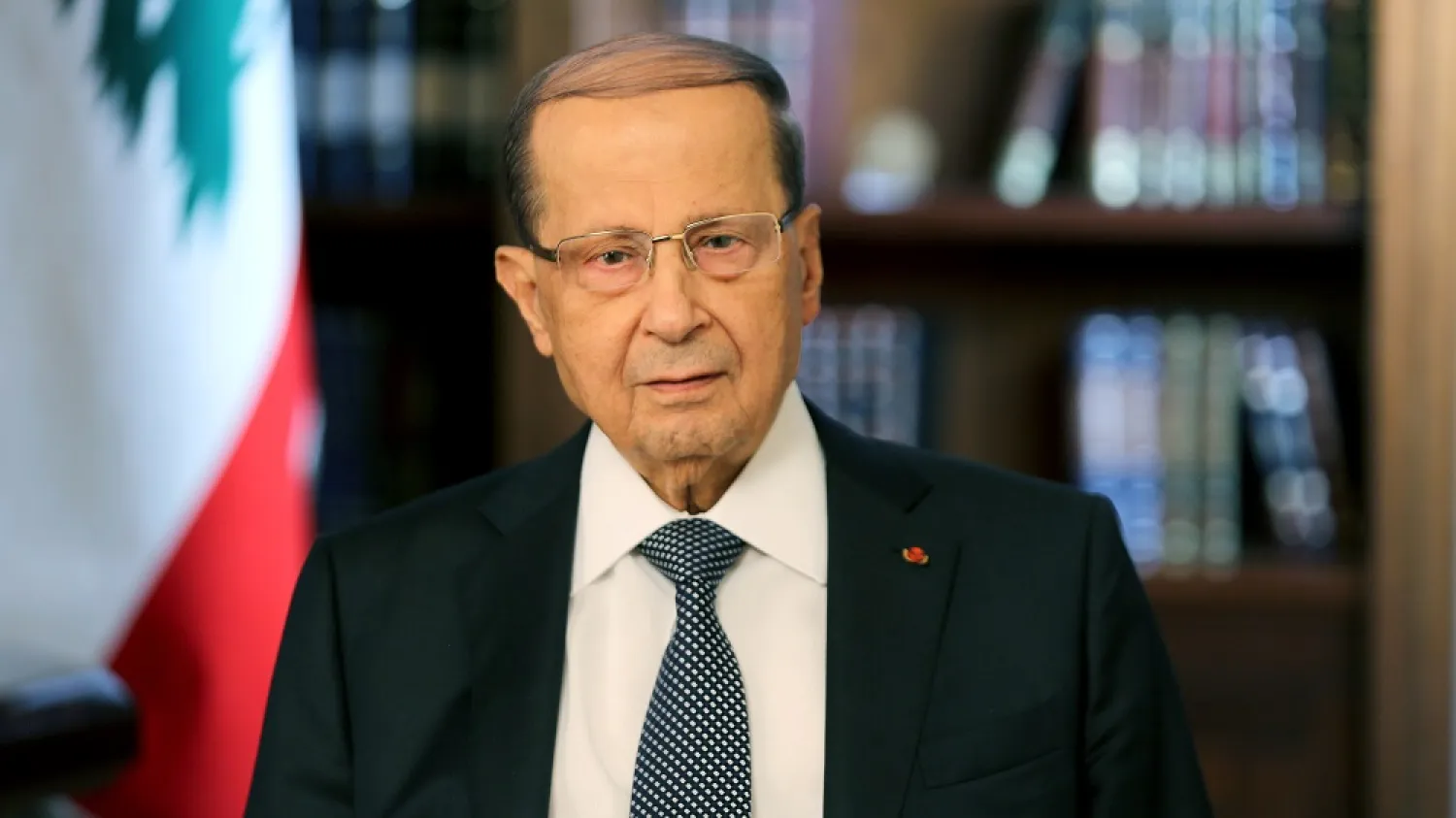Lebanese President Michel Aoun stressed on Tuesday that his country adopted its policy of disassociation to avoid getting embroiled in conflicts, while also defending “Hezbollah” without naming it.
In a speech on the eve of Lebanon’s Independence Day, he called on the Arab League to “take an initiative based on the principles, objectives and spirit of its Charter, in order to save itself and its member States.”
“In my inaugural speech, I declared that one of our top priorities was to prevent any spark from the raging flames around us to move into Lebanon’s inner space. I affirmed the need for Lebanon to distance itself from external conflicts and to be committed to respecting the Arab League Charter – notably its 8th article.
“We therefore have adopted a totally independent policy, we have avoided entering into disputes and we have called – and are still calling – for dialogue and harmony among Arab brothers because in internal wars there is inevitable loss for the victorious, as well and as for the defeated, and the two statuses are meaningless because the great loss befalls the nation.”
Aoun then listed Israeli wars and offensive against Lebanon, as well as Lebanon’s confrontation against terrorism on its eastern borders.
The terrorist groups sought to create instability and sow strife, he added.
“Is it not better for the international community to take the lead of a new approach based on rights, justice and the peoples’ right to self-determination, through which it would tackle the issues of weapons, armament and wars?” he asked.
“Throughout all those periods and milestones, Lebanon was paying the highest prices, striving to keep away the specter of sedition. The nation whose people and army have made generous sacrifices in blood against the Israeli, as well as the Takfiri enemy, this very nation, which has scored heroic achievements and sacrifices in liberating its land from both, is not easy to plunder as long as it holds on to its internal unity in the face of strife, the greatest evil,” he added.
“Lebanon has only received the fallout of clashes and the shrapnel of explosions, and it is vain to deal with the fallout unless the door of conflicts is shut. In all cases, Lebanon will not yield to any opinion, advice or decision that drives it towards internal strife, and those who wish Lebanon well would help it consolidate its unity because it is its safety valve,” stressed the president.
Addressing Arab brothers, Aoun said: “Dealing with Lebanon requires much wisdom and rationalism; otherwise it would be like pushing it towards fire. Despite everything that happened, we still place high hopes around the League of Arab States to take an initiative based on the principles, objectives and spirit of its Charter, in order to save itself and its member States, and to rescue its humans, sovereignty and independence.
“I also address the international community which is aware of the importance of Lebanon’s stability, and I call on it to safeguard it through the full implementation of international justice.
“To the Lebanese, I say: with your unity you have overcome many hardships, crises and dangers. Do not let strife peek out among you because it represents mass destruction that no one will survive. Your unity is your sole savior, your security, your stability and the future of your country and children,” he declared.









